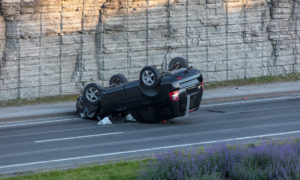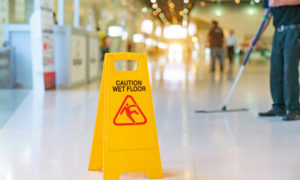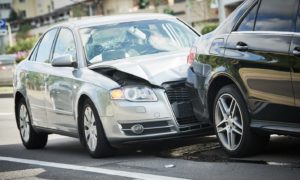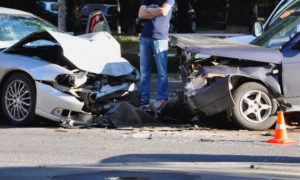Can I Ride in the Bed of a Truck in Florida?

Florida’s sunny highways, waterfront weekends, and vibrant communities often mean people look for fun, novel ways to travel. Riding in a truck bed may seem like a carefree, breezy way to get around, but is it legal? Is it safe? What are the consequences? This blog dives into the rules, the risks, and what everyone should know to stay safe and compliant. It also highlights how a Florida injury attorney can play a vital role if things go wrong.
Riding in the Truck Bed: Quick Answer
Yes, but only under very limited circumstances. Florida law allows passengers in a truck bed only when the vehicle travels 25 mph or less for specific agricultural purposes. Otherwise, it’s a violation—and that’s where problems begin.
What Florida Law States
Florida’s statutes address this. According to Florida Statutes § 316.212, it’s unlawful for anyone to ride in or on the bed of a truck on public roads and highways—unless:
- The vehicle is being used for agricultural or livestock‑related operations,
- It’s traveling at no more than 25 miles per hour, and
- The activity is carried out on a road or private land in connection with the agricultural use of the transport vehicle.
A casual ride on the weekend doesn’t qualify. This law is designed to protect people: passengers in truck beds are at high risk during sudden stops, turns, or crashes.
Why So Strict? The Safety Argument
Truck beds aren’t designed with occupants in mind. They lack:
- Seat restraints
- Ergonomic seating
- Protection from falls
- Proper vehicle crashworthiness
When a truck suddenly stops or swerves, unrestrained passengers can become projectiles. In worst cases, they can be ejected from the vehicle entirely.
A crash might mean broken bones, spinal injuries, traumatic brain injury, or worse. Extra risk comes from something as simple as hitting a bump at 40–60 mph: the jolt can fling someone over the side. The lack of an NHTSA-approved crash structure makes truck beds deadly during collisions. If injuries occur, an accident lawyer in Florida can help injured victims understand their rights and seek compensation.
Common Scenarios People Misjudge
Tailgating and Weekend Events
Picture a tailgate party with people spilling into truck beds for convenience. While suburban roads may seem safe casually, most of these rides are illegal. If a traffic stop happens or, worse, a collision, any injuries could leave an uninsured passenger without legal recourse.
Driving through Private Property
Many assume private property is a safe zone. Florida law only allows riding in the bed of a truck for agricultural purposes, regardless of location. Even a driveway or a family farm doesn’t circumvent the rules unless a bona fide agricultural task is underway.
“Just Around the Corner”
Sometimes passengers hop in for short distances—“just around the block.” Sadly, law enforcement doesn’t give leeway. If stopped, the driver could get cited, and insurance may deny injury claims in the case of a crash.
Penalties and Legal Consequences
Riding in a prohibited manner isn’t a misdemeanor or felony in most cases, but it’s still a non-criminal traffic infraction. It can result in:
- A nonmoving violation citation
- A $60 fine plus court costs
- Two points on the driver’s license
When injuries occur, the legal story gets layered. Even if a passenger knowingly rides in a truck bed, Florida law allows them to file claims for injuries caused by the driver’s negligence. A skilled Florida injury attorney can leverage crash reports, eyewitness accounts, and medical records to build a strong compensation claim.
Of Course—Accidents Happen
Even under the agricultural exception, crashes are possible. And even if the law doesn’t initially penalize the passenger, the long-term consequences can be grave:
- The driver’s insurance may deny coverage if the passenger was in an unauthorized position.
- Compensation may be limited unless an accident lawyer in Florida steps in.
- Passengers could be accused of contributory negligence, but Florida is a “Pure Comparative Fault” state, meaning injured parties can still recover damages, even if they are partly at fault.
For example, if a truck hit a patch of gravel and skidded, injuring a passenger, a Florida injury attorney could argue that sudden unexpected road hazards represent negligence by the driver or other parties (like a negligent city that failed to maintain roads).
Real-Life Examples to Learn From
Imagine a small family farm operation. A farmer, driving below 25 mph, transports uninjured riders during harvest. The ride is legal under the agricultural exception. But if the truck collides with a guardrail and a passenger is injured, complex questions arise:
- Was this truly agricultural?
- Was the farm operation properly licensed as such?
- Did the driver do everything within reason to prevent the crash?
A seasoned accident lawyer in Florida might examine farm operational documents and expert agricultural standards to see if an exception truly applies.
Or picture a beachgoer cruising at 15 mph with a dozen friends in the truck bed. A shortcut causes the truck to hit a pothole. A passenger is thrown out and has major spinal injuries. Claiming broken-road negligence and reconstructing the accident would help the injured party recover through personal injury claims. That’s a job for a Florida injury attorney.
Comparative Fault: Who Pays?
Florida follows a pure comparative negligence standard. This means injured people can recover damages even if they were partially at fault, but their damages are reduced by their percentage of fault.
For instance, if a court finds the passenger 30% at fault for riding in the truck bed (an illegal act) and the driver 70% at fault for failing to account for road hazards, a jury might award $100,000. The passenger receives $70,000 (i.e., $100,000 minus 30%). Courts appreciate this nuance, balancing risk and responsibility.
An experienced Florida injury attorney helps make such calculations and negotiations happen fairly.
Insurance Challenges
Auto insurers usually write policies assuming all passengers ride in standard seating. When someone rides in a non-designated position like a truck bed, insurers often deny coverage for injury claims, citing “unauthorized location” exclusion.
This gap underscores the importance of legal representation. A Florida injury attorney could push back, arguing:
- Insurers must provide coverage regardless of where the passenger sits
- The driver fulfilled their duty of care
- Denying claims based on seating is unreasonable
Attorneys may show precedents where courts ruled insurers wrongfully denied valid injury claims.
Road Signs vs. State Statutes
Some cities—especially near beaches—have signs warning “No Riding in Truck Beds.” These often carry extra municipal fines. Even in municipal zones that do temporarily permit it, drivers must still follow state laws regarding speed and purpose.
Sometimes, police target truck‑bed riders during pedestrian‑heavy festivals. Tickets can outweigh weekend fun pretty quickly.
Safety Alternatives
For those craving fresh-air rides, there are better options:
- Camper shells with proper restraints
- Flat‑bed trailers with railings and tied‑down passengers (used legally in farming)
- Open‑air passenger trailers for ranches
- Golf carts or utility‑terrain vehicles (UTVs) where legal
These alternatives can mimic the breezy feel of a truck‑bed ride more safely and lawfully.
What to Do If an Injury Occurs
Here’s a roadmap if riding in a truck bed leads to injury:
- Seek medical attention immediately
- Collect evidence—photos, dashcam footage, witness contacts
- Report the incident to insurance and file a police report
- Consult a qualified accident lawyer in Florida who works with personal injury claims, not criminal defense
- Let them handle communications with insurers and prepare a claim
- If negotiations stall, consider litigation
These attorneys aren’t performing legal magic—they are doing experienced negotiation. They’ll assemble medical records, accident scene reconstructions, and witness statements to show how the crash occurred and who is responsible.
Selecting the Right Attorney
When choosing between a Florida injury attorney, think practical:
- Look for someone experienced in roadway negligence
- Seek firms or individuals with proven track records in seating‑position injury cases
- Confirm they work on contingency (no fee unless you win)
- Check client reviews and see how they handled evidence‑heavy cases
A good lawyer will explain compensation possibilities—medical bills, pain and suffering, future lost earnings—clearly and quickly.
Pros and Cons Summary
Pros
- Riding in a truck bed may feel exciting, especially on a breezy weekend
- For agricultural use under 25 mph, it’s actually legal in Florida
Cons
- Minimal legal scope—typically illegal for ordinary users
- High risk of serious injury or death
- Insurance may deny claims
- Driver gets tickets, points, and fines
- Legal defense and claims get complex when injuries happen
Frequently Asked Questions
Can minors ride in truck beds?
Minors are subject to all regulations. State law doesn’t grant any extra protection—they face the same risk, violation, and injury exposure.
What if no one else is injured—can the passenger sue?
Yes. Even without other victims, a passenger can sue for personal injury. Florida’s courts allow individuals injured in non-criminal negligence incidents to seek compensation.
Does an agricultural employer’s insurance cover farm workers riding in truck beds?
Farm policies often include exceptions, but riders must still follow the 25 mph/agricultural purpose rule. If they don’t, injuries might fall outside coverage.
Is it safer to ride in the open tailgate area?
No. It’s still part of the truck bed—just closer to the opening. It still lacks restraint, seat structures, or crash protection.
Stay Safe and Protect Your Rights
Riding in a truck bed under Florida’s sunshine might seem like a fun shortcut—but law and safety are firm here. Florida statutes prohibit it except under limited agricultural use, at slow speeds. Penalties can be steep, and worse, the safety risks are grave. If anyone is hurt, navigating insurance and liability is complicated, but a knowledgeable accident lawyer in Florida can turn that into a path for rightful compensation.
That breeze may be tempting, but so are seat belts and proper seating. Stick with safer, legal alternatives—and if things somehow go wrong, legal help is just a phone call away.






















Pingback: Is It Legal to Ride in the Bed of a Truck? - auto sales